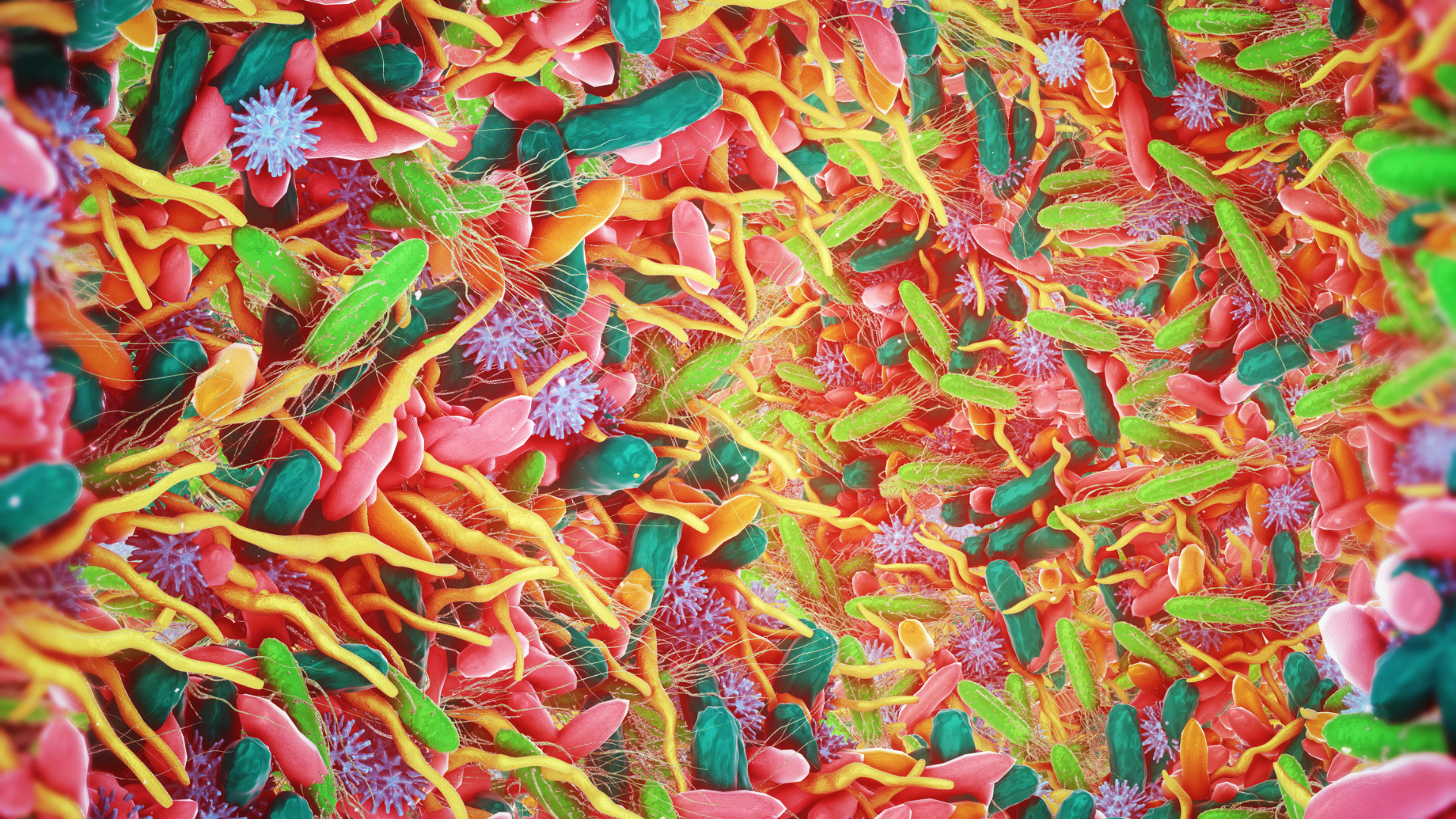Is Your Gut in Balance? Simple Ways to Support a Healthy Microbiome

A balanced microbiome—a diverse community of bacteria, yeasts, and even viruses living in your gut—plays a critical role in your digestion, immunity, and brain health. Preventive Medicine physician, Dr. Dan Angerbauer, focuses on helping all of his patients optimize their GI function and microbiome as a key component to longevity. Here, he describes what it means to have a healthy microbiome, why balance matters, and how simple lifestyle changes can support your gut health.
What Defines a Healthy Microbiome?
When it comes to gut health, many people ask, “What makes a healthy microbiome? Is it having the right ‘good guys,’ the good strains, or not having the ‘bad guys’?” Dr. Angerbauer explains that “it goes back to balance.” “You could have all the right good guys, the right beneficial strains … and if [the bad strains] overgrow, you’re gonna be having GI issues or SIBO, small intestinal bacterial overgrowth, or something like that.”
The microbiome is a complex ecosystem where various organisms must coexist in harmony. As Dr. Angerbauer notes, “There’s just this complex dance of all these different organisms interacting with one another,” which is why it’s challenging to recommend a one-size-fits-all approach to gut health. He explains that we’re likely a long way from being able to prescribe someone a specific bacterial strain to solve their GI problems. However, there are general strategies we can all implement to achieve a healthier gut.
Supporting Balance Through Diet and Lifestyle Habits
One of the best ways to promote a balanced microbiome is through diet. Dr. Angerbauer emphasizes the importance of incorporating more whole foods, less processed foods, and less sugar in your meals. He suggests focusing on plant-based foods that provide essential fibers, polyphenols, prebiotics, and probiotics. These components fuel the beneficial bacteria in the gut and help maintain balance. Additional examples of particularly gut-friendly foods include sauerkraut, yogurt, and kefir.
Beyond diet, Dr. Angerbauer points out that “everything that you think of in terms of health has an impact on the microbiome.” This includes exercise, sleep, and stress management. He advises that exercise can be beneficial to gut health but warns that excessive intensity, such as training for triathlons, can disrupt the microbiome. He explains this level of intensity seems to actually disrupt the gut microbiome and barrier, which could allow for unwanted organisms to enter the GI tract.
Sleep and stress management are equally important. Sleep helps regulate the body’s natural rhythms, which also affects gut health, while managing stress is essential for preventing gut-related issues. The gut is highly responsive to stress signals from the brain, which can exacerbate digestive issues and potentially disrupt the balance of gut bacteria.
Signs Your Gut May Be Out of Balance
How can you tell if your gut needs some extra attention? Dr. Angerbauer provides some clear guidelines. “What I would say is everyone should be having at least one bowel movement per day,” he notes, adding that the consistency of stool matters too. Ideally, bowel movements should align with a “Bristol 4,” a standard on the Bristol Stool Scale indicating a smooth, soft consistency that isn’t too loose or too hard.
Dr. Angerbauer also points out that if you’re experiencing GI discomfort, it could signal an imbalance. “If you're having a lot of gas, bloating, indigestion, abdominal pain—especially abdominal pain that's relieved by a bowel movement—reflux, any of these GI symptoms could be connected to some sort of dysbiosis or issue that's going on in the gut,” he explains.
He adds that for those with minimal GI symptoms, who are having a bowel movement every day, that’s generally Bristol 4 - your microbiome and your gut are probably doing pretty well and you may not have much to gain from taking a probiotic. For individuals with significant symptoms or gut health issues, a probiotic supplement might be beneficial.
Maintaining a balanced microbiome is essential for overall health, but it’s about more than just having “good” or “bad” bacteria. As Dr. Angerbauer highlights, balance is key, and diet and lifestyle play crucial roles in achieving this equilibrium. By focusing on whole foods, managing stress, and paying attention to signs from your body, you can support a healthier, more balanced microbiome.
To learn more about how and when to focus on your microbiome, watch our conversation with Dr. Dan Angerbauer in the video above.
By Alicia J. Barber, PhD
Disclaimer
The Video and Written Educational Content included on this site is not intended to be a substitute for professional medical advice, diagnosis, or treatment. Always seek the advice of your physician or other qualified health provider with any questions you may have regarding a medical condition. Never disregard professional medical advice or delay in seeking it because of something you have read or seen on the Site.
The information contained in the Educational Content posted represents the views and opinions of the individual in the recording and does not necessarily represent the views or opinions of IND. The mere appearance of Educational Content on the Site does not constitute an endorsement by IND or its affiliates of such Content.
The Educational Content has been made available for informational and educational purposes only. IND does not make any representation or warranties with respect to the accuracy, applicability, fitness, or completeness of the Content. IND does not warrant the performance, effectiveness or applicability of any sites listed or linked to in any Content. IND hereby disclaims any and all liability to any party for any direct, indirect, implied, punitive, special, incidental or other consequential damages arising directly or indirectly from any use of the Content, which is provided as is, and without warranties.